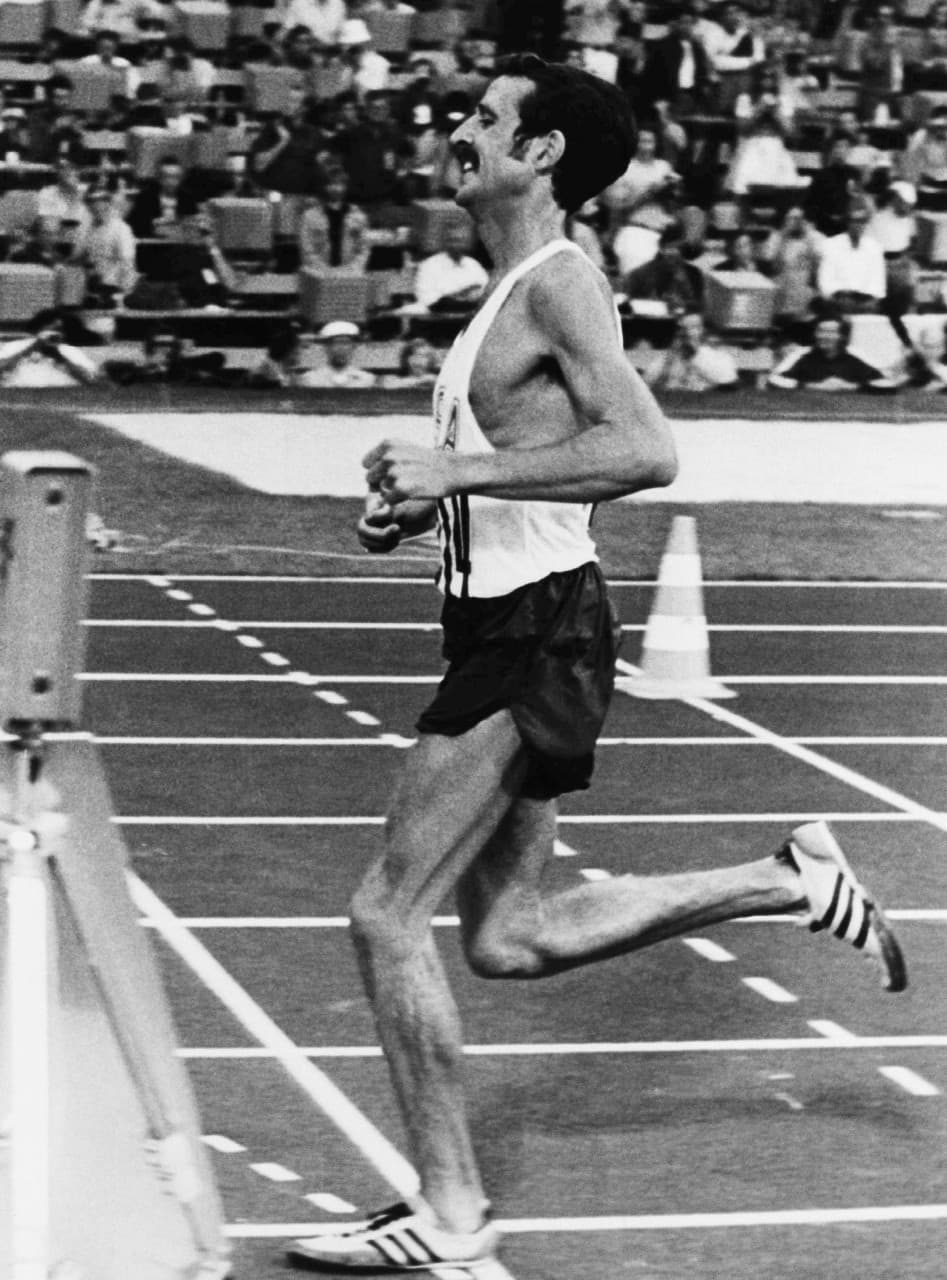Advertisement
Memories Of Terror At The Munich Olympics
ResumeAmerican long-distance runner Frank Shorter heard the first shots when Palestinian terrorists broke into the quarters where Israeli athletes were sleeping at the Olympics in Munich, West Germany in 1972.
By the time the hostage crisis ended the next day, 11 Israeli athletes were dead.
A few days later, after a debate among the U.S. athletes about whether they should stay and complete the Olympics, Shorter won the final event of the Olympics, the marathon.
He joins Here & Now's Robin Young to reflect on the concerns about terrorism as the Winter Olympics begin in Sochi, Russia.
Interview Highlights: Frank Shorter

On athletes in Sochi worrying about potential danger
"Now the athletes can decide beforehand how they are going to deal with it, whereas we had to decide right at that moment, pretty much after the memorial service, just how we were gonna go on. But my feeling is the mental attitude you take is the same. Really, when you get down to it, as an elite athlete, you’ve developed an ability to focus on your event — to turn the switch on and turn the switch off, as I put it. And you also realize that in that circumstance that with all that chaos, and here the possibility of chaos in Sochi, the only thing over which you have any control are your own thoughts."
On his decision to compete after the Munich attacks
"The next day when we woke up to find out that everyone had died at the airport, really the collective feeling was we’re all going home, because nothing’s worth human life. And so it’s over, the games are over. But it wasn’t a feeling of having been deprived of something, it was more it was more a realization somehow that everyone was coming to in this state of shock. But what happened then is, as we continued to process this over the next day, and then when they had the memorial service in the stadium the next night, on the way back from that memorial service, I think that’s when — at least for me — that feeling of no, no you can’t give in, because if you do, the terrorists win. And that’s when I had this discussion with Kenny Moore about how for me, I was going to run the race, and I was not going to think about what could happen because to me the only place in the Olympics — and I said this to Kenny — the only other place in the Olympics that terrorists can do something now with all the security heightened is out on the Olympic marathon course. And I’m not going to think about it, because if I do – they win. And I ran the entire race, and I never thought about it."
On the Boston Marathon bombings triggering memories for him
"It does trigger the memories. Because I was actually just going into a store across the street, into the store that had the security camera that showed where the second bomb was. And I was trying to take a shortcut over to the television trucks I was helping with the broadcast, and I heard the bomb and I knew right away what it was, I did. I just said oh no, oh no. And then I went into the store to go out the back because I knew there would be other people coming in behind me. And I heard the second bomb, which was right across the street, and then all I could think of was the reason I turned into the store — the crowd had stopped and my gauge of making no progress was a child being held on the shoulders of a man about 10 feet ahead of me, and I went into the store, and that bomb went off and all I could think of was that child on the shoulders of this person, and my thought was oh no, oh no not again."
On how the response was different at the marathon bombing
"You would think that it might be panic in the theater when someone says 'fire' — absolutely the opposite. Everyone was walking slowly, purposefully, some people were very upset, crying, a certain amount of hysteria, they were being comforted, and everyone was just sort of flowing out the back, away from this danger. And to me, right then, I knew in a way something was different about how people responded. And then you saw what went on during the rest of the day, as people were running to the victims rather than try to run away from the scene, and I think it that respect it's changed."
Guest
- Frank Shorter, 1972 Olympic Marathon winner.
This segment aired on February 10, 2014.
